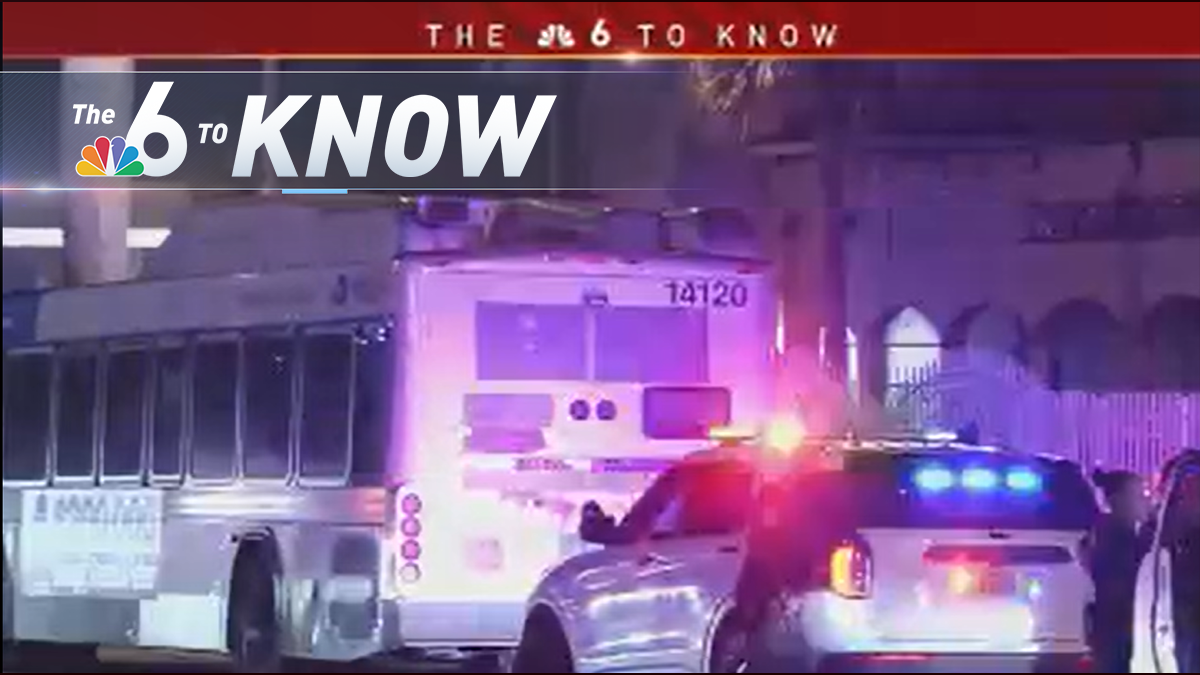NBC6’s Lorena Inclan has the latest after a list was released of about 300 books banned in Florida during the 2022-23 school year.
Three parents on Thursday filed a federal lawsuit challenging a controversial 2023 Florida law that increased scrutiny of school-library books and instructional materials, alleging the process for removing books unconstitutionally discriminates against parents who disagree with “the state’s favored viewpoint.”
The law (SB 1069), in part, made the process of objecting to books and instructional materials easier — and came amid legal and political fights in Florida and other states about removing books from school shelves.
Watch NBC6 free wherever you are
Plaintiffs in Thursday’s lawsuit are two parents from St. Johns County and one from Orange County.. They contend Florida lacks a procedure for parents to object to book removals, an unconstitutional infringement of their First Amendment rights.
The law “only provides a mechanism for a parent to object to the affirmative use of material; it does not provide a mechanism for a parent to object to the lack of use or discontinued use of material,” the lawsuit said.
Get local news you need to know to start your day with NBC 6's News Headlines newsletter.
The law and accompanying rules violate the First Amendment because they provide or deny access to the book-review process “on the basis of a parent’s viewpoint,” lawyers for the plaintiffs wrote. Access depends on whether the parent’s viewpoint agrees or disagrees with a local school board’s decision, they alleged.
Plaintiffs — Nancy Tray and Anne Watts Tressler of St. Johns County and Stephana Ferrell of Orange County — are being represented by Democracy Forward, a legal advocacy group; the American Civil Liberties Union of Florida; and the Southern Poverty Law Center.
Parents in the lawsuit have filed requests for state review of school-district decisions about book removals or restrictions “or would file such requests but for their reasonable expectation that any such request will be denied,” the lawsuit said.
Local
Ferrell, for example, tried to appeal a 2023 decision by Orange County school officials to remove the book “Shut Up!” by Marilyn Reynolds district-wide, according to the lawsuit. School-district officials told her that she “lacked standing” to challenge the decision and that the appeal process only was available to people challenging decisions not to remove books.
State officials also thwarted Ferrell’s request to have the book removal reconsidered.
“A special magistrate is not available to contest a district’s decision to remove material or for the purpose of providing clarification on the law. As such, your request has been dismissed,” state Department of Education officials wrote to Ferrell five months after she reached out to them.
“Parent Ferrell’s request was dismissed because she holds the state’s disfavored view,” the lawsuit said.
The state “should not be able to discriminate against the voices of parents they disagree with — I deserve an equal voice in my child’s education as any other parent,” Ferrell, the mother of two children who attend elementary and middle schools in Orange County, said in a prepared statement Thursday.
Tressler disagreed with St. Johns County school officials’ decisions to restrict access to “Slaughterhouse Five,” “A Stolen Life,” “Freedom Writers Diary” and other books, according to the lawsuit. A district official told her in May that the county’s “guidance and procedures do not address a formal process for an appeal after a title is removed,” the lawsuit said.
The 2023 law expanded on a 2022 law titled by the Republican-controlled Legislature as the “Parental Rights in Education” act and dubbed by opponents as the “don’t say gay” bill.
The 2023 measure required the Department of Education to create forms for objecting to books, with the forms readily accessible on school districts’ websites. The law also set up a process for people who disagree with local decisions about objections to request appointment of special magistrates to review whether material violates state restrictions about sexually explicit or violent material.
In instances where objections are made based on possible pornographic content or material that “describes sexual conduct,” the law requires the materials to be removed from schools within five days of the objections and “remain unavailable to students of that school until the objection is resolved.”
The lawsuit filed Thursday named as defendants members of the State Board of Education and Florida Education Commissioner Manny Diaz Jr.
In a separate lawsuit filed last year, a federal judge in January cleared the way for a First Amendment challenge to decisions by the Escambia County School Board to remove or restrict access to school library books.
Seven parents of schoolchildren, five authors, the publishing company Penguin Random House and the free-speech group PEN America filed the lawsuit, which involves the removal of 10 books and restrictions on access to more than 150 others, according to court documents. Examples include, “The Bluest Eye,” a novel by Nobel Prize-winning author Toni Morrison, and the book “And Tango Makes Three,” which tells the story of two male penguins who raised a penguin chick at New York’s Central Park Zoo.
The Legislature and Gov. Ron DeSantis this year approved a bill that will make it harder for some people to challenge school books. The bill will require that any “resident of the county who is not the parent or guardian of a student with access to school district materials may not object to more than one material per month.”



